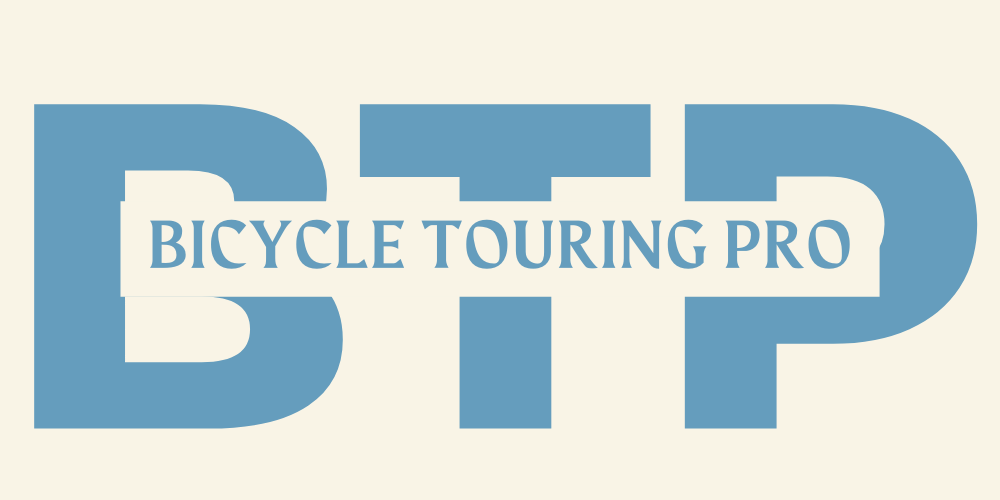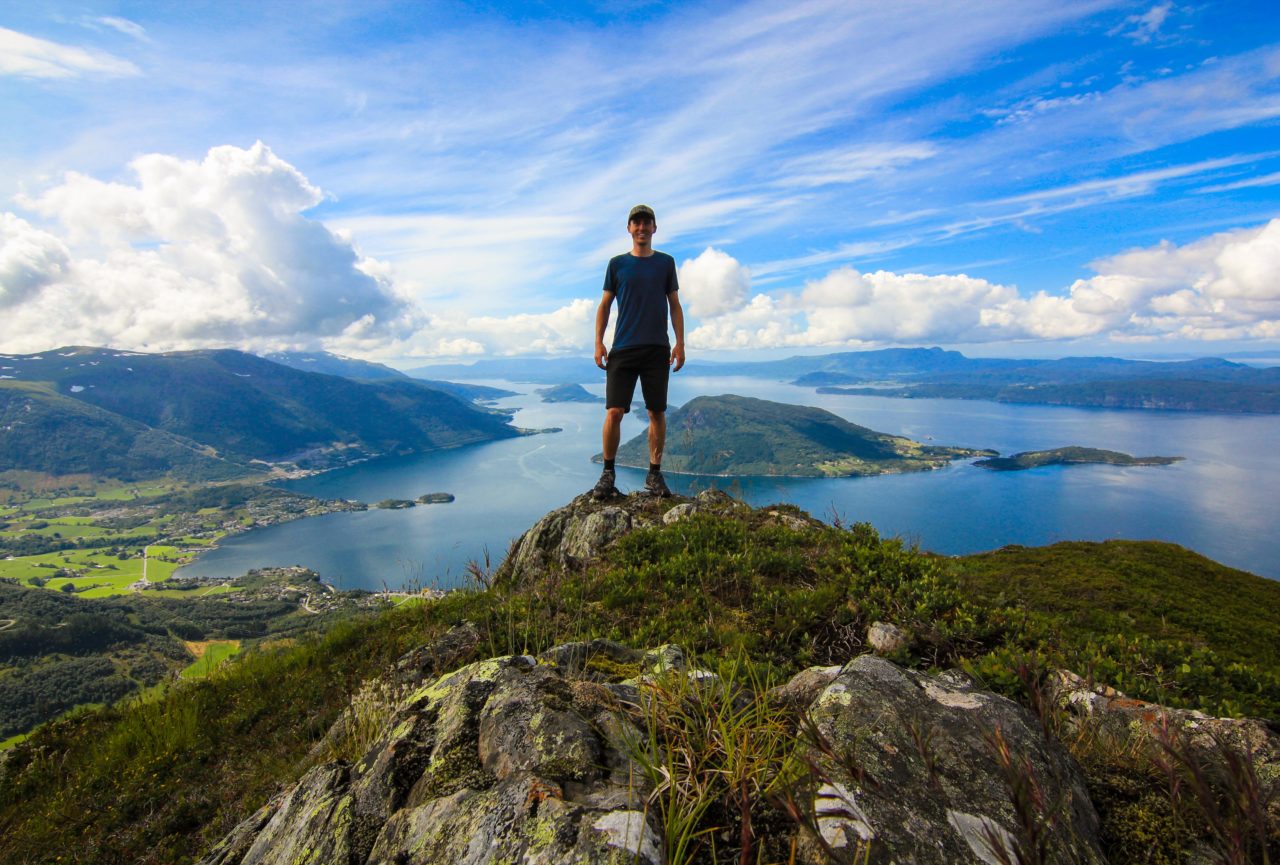3 Life Lessons You Can Use Both On And Off Your Bike
For a while now I’ve been telling people how little I actually learned during my 17+ years of formal education… and just how much I’ve been able to pick up since my time in school has ended. While my high school and college education provided with a number of skills (most of which I never use) my bicycle travels have enabled me to meet new people, experience new places, and try new things. But most importantly, my trips by bike have given me the opportunity to learn about things I actually care about.
As I look back on the lessons I’ve learned over the past 25 years, there are three that stand out more than any other. Each of these lessons can be applied to bicycle touring, but more importantly, each of these lessons can be applied to a variety of different areas in one’s life (i.e. relationships, business, finance, travel, etc.) Here they are:
Look Into The Future – See Multiple Steps Ahead
Most of you don’t know this, but I was a big soccer player growing up. In high school I was playing on three or four different soccer teams at any one time. I was the captain of my high school’s varsity soccer team, captain of our city’s competitive club soccer team, a member of an indoor soccer club, and a starting defender for the Olympic Development Program (ODP).
Somewhere near the beginning of my soccer career I had a coach pull me aside after practice one day and he gave me a piece of advice that would forever change me life. He said, “Darren, when you pass the ball, you’ve got to be able to look into the future. Don’t just think about who you are going to pass the ball to, but think about who that person is going to pass the ball to. Once you can do that, starting seeing multiple steps ahead. The more passes ahead you can see in your mind, the better a player you will become.”
If you need to, read that statement over again, because it’s very important!
My coach was giving me advice to make me a better soccer player, but in reality, he was teaching me a lesson that can be applied to a number of different aspects of one’s life.
When doing anything, whether it be applying for a job, driving your car, signing your kids up for tennis lessons, or even planning a bicycle tour, there are huge advantages for people who can see multiple steps ahead. The more steps ahead that you can see, the better!
As far as bicycle touring goes, seeing ahead is important for a number of reasons.
First of all, consider the planning process. Being able to think ahead and know what kind of conditions you might encounter while on the road will help you to determine what to pack and how to prepare. If you think you might encounter snow, you’ll probably want to bring a jacket and gloves. If you’re going to be riding through the desert, you’ll probably want to bring some extra water and a tent. And if you’re really smart, you’ll think of a backup plan for each and every situation you might encounter. Being able to see into the future during the planning process is of utmost importance. You don’t want to get out on the road and then realize that there’s been some crucial step that was overlooked in the planning process.
Secondly, consider safety. Being able to determine the actions and reactions of the people around you is important – especially when traveling on a bicycle.
See that car coming up in your rear view mirror? Do they see you? Is the driver asleep at the wheel? What about that semi truck that’s about to drive straight into a low hanging power line? Should you speed up? Or slow down? And what about that farmer who has offered you a place to sleep tonight? Should you trust him? Or maybe you should move on and find other accommodations for the evening?
Seeing into the future and being able to quickly plan and react to certain situations is not only smart, but it’s a skill that could one day save your life!
Start now and practice thinking just one step ahead. Most people can’t even do this. But once you get this first step down, start increasing your steps… and see how far you can go.
People Don’t Care About You. They Only Care About Themselves.
During my second year of college I had an economics teacher who on the first day of class told his students, “We are going to cover a lot of information this semester, but I know how these things work. You remember just enough to pass the class and then promptly forget everything I’ve taught you. So here’s the deal: If you get anything out of this class, remember this: ‘People don’t care about you. They only care about themselves… and they’ll always act in their best interest.’”
Now, hold on a minute! This sounds pretty harsh and if you’re anything like myself, you don’t want to believe this statement is true. But before you get your panties in a wad, let me explain.
My teacher was talking economics. He was, first and foremost, talking about business and business deals.
What he was trying to say was that in a business situation, the person you are striking a deal with is always looking at the situation from the perspective of “How is this best for me?” They don’t care what’s in the deal for you. They only care about themselves.
Think about it! There isn’t a company on earth that when striking a deal with another company would say, “Sure, I’d be willing to pay more money, work more hours, and sacrifice time away from my wife and kids so your employees can go home an hour earlier.”
No! It doesn’t work that way. People, in business anyway, almost always look at a situation in regards to what is best for them… and them alone!
So how does this relate to bicycle touring?
It relates in a number of ways, but here’s the most obvious: Accommodations.
I recently released what I call, “The Ultimate Guide To Free Lodging,” a guidebook and CD course that takes you by the hand and teaches you how to obtain free hotels and campgrounds for your bicycle adventures.
In the course, I reveal some secret strategies that you can use to convince hotels and campgrounds to let you stay with them for free. In fact, if you do it right, they’ll be begging for you to be a part of their business and community.
But here’s the trick… simply asking for a free place to stay isn’t going to cut it in most situations. Just because you’re riding your bike across the country is not a good enough reason for obtaining free lodging. The only way to really get a free accommodation is to look at things from the hotel’s perspective and provide them with enough value that they are happy to give you a free place to sleep. Providing them with value is the key!
You see… this just goes back to what my economics teacher was saying. The hotels don’t care about you. They don’t care about your bicycle adventure. And they certainly don’t care that you’re strapped for cash.
But when you consider them first and provide them with enough value (value that is in fact more worthwhile than the price of a hotel room), then they’re more than willing to give you a free place to stay.
This is a difficult concept to grasp… and it’s hard not to look at this idea negatively because there are people and companies out there who do great things and don’t expect anything in return. But for the most part, when people do something for you, they expect to get something back.
Remember this lesson and use it to your advantage!
Want Something? Ask For It!
Finally, if you want something, you’ve got to ask for it.
It wasn’t until my third long distance bicycle tour up the east coast of the United States that I really began to realize the power of this concept. And it was Canadian best-selling author, Ted Schredd, who turned me on to this idea in the first place.
In his famous book, “The Cycle Adventures Of Coconut Head“, Ted cycles around the United States with little or no money in his pocket. Along the way, he relies on the kindness of strangers to take him in and feed him on his journey. But Ted doesn’t just leave things up to chance and hope that people will approach him with a warm meal and shelter for the night. No! Instead, Ted takes matters into his own hands and simply goes up to people’s houses, knocks on the front door, and asks if he can spend the night (or at the very least, watch an episode of The Simpsons).
After I finished reading Ted’s book, I left on my east coast adventure and used a similar approach. Each night, as it got dark, I would approach a complete stranger either on the street or in their home and ask if I might be able to spend the night at his or her residence. And believe it or not, most people were more than happy to have me spend the night.
In addition to receiving free places to stay, I also got hot showers, warm meals, gifts of all shapes and sizes… and even a little money! By asking for what I wanted, I was able to travel through 13 east coast states and come back home with more money than I had left with! It truly was incredible.
But it didn’t end there!
The next year I asked for free hotel rooms (using the strategies in “The Ultimate Guide To Free Lodging”) and received thousands of dollars worth of accommodations and free meals for my journey down the Mississippi River.
It seemed that the trick of getting what I wanted was to simply ask for it.
Of course, now that I have a little more money in my pocket I don’t ask for very much, but when a situation does roll around and there’s something I really want, I…
1) Look into the future and consider which steps need to be taken
2) Think about the situation from the other person’s perspective
3) And ask for what I want
How many steps into the future can you see? When was the last time you approached a situation by first thinking from the other person’s perspective? And what could you get right now simply by asking for it?

